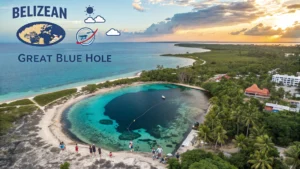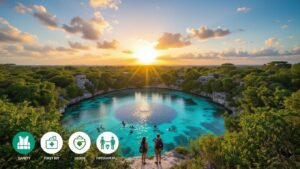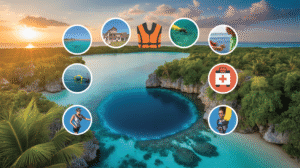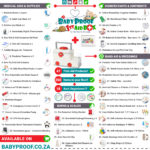Belize is renowned as a premier Caribbean destination, yet it is vital for prospective visitors to find a harmonious balance between indulging in the paradise that Belize presents and taking essential precautions to safeguard their well-being. This extensive guide presents the latest crime statistics, government advisories, and invaluable real-world insights to arm travellers with the necessary knowledge to explore Belize’s breathtaking beaches, verdant jungles, and magnificent ancient ruins while placing their safety at the forefront.
1. In-Depth Analysis of Crime Rates and Trends in Belize
As of 2024, Belize recorded a homicide rate of 21.7 per 100,000 inhabitants, reflecting a minor increase from the 2023 rate of 21.5. Notably, there was a significant reduction in homicides by 29 percent during the first half of 2025 compared to the same period in 2024, with recorded cases dropping from 58 to just 41. According to the CompStat report from the Belize Police Department, there was also an overall decline in major crimes by 9 percent, decreasing from 536 incidents in H1 2024 to 489 in H1 2025. This positive trend can be attributed to notable decreases in murder (–29 percent), robbery (–15 percent), and theft (–26 percent), indicating an improving climate of safety for both residents and visitors alike.
| Crime Category | Jan–Jun 2024 | Jan–Jun 2025 | Change |
|---|---|---|---|
| Major crimes | 536 | 489 | –9 percent |
| Murders | 58 | 41 | –29 percent |
| Robbery | – | – | –15 percent |
| Theft | – | – | –26 percent |
2. Key Government Travel Advisories for a Safe Visit to Belize
- U.S. Department of State: At present, Belize is rated as Level 2: Exercise Increased Caution due to the ongoing prevalence of violent crime, which encompasses sexual assault, home invasions, armed robberies, and murder. Notably, the Southside of Belize City is categorised as Level 3: Reconsider Travel—it is advisable for travellers to steer clear of non-tourist areas located south of Haulover Creek. Source: U.S. Department of State
- Government of Canada: Canadians are encouraged to exercise a high degree of caution throughout the country, with specific recommendations to avoid non-essential travel to Southside Belize City due to the ongoing gang-related and drug-related violence. Source: Government of Canada
- UK FCDO: The UK Foreign, Commonwealth & Development Office cautions that Belize has one of the highest murder rates globally per capita; serious gang-related violence primarily affects the Southside of Belize City. However, other regions such as San Pedro, Caye Caulker, Placencia, and San Ignacio generally remain secure for travellers who take appropriate precautions. Source: UK Foreign, Commonwealth & Development Office
3. Recognising High-Risk Areas and Common Crimes in Belize
- Belize City (Southside): This region is notorious for gang activity, which significantly contributes to elevated violent crime rates. Travellers are advised to avoid non-tourist neighbourhoods, particularly during the night, to ensure personal safety.
- Border Zones: Areas adjacent to the borders are witnessing increased smuggling and cross-border violence, particularly involving Guatemala, which travellers should be cognizant of.
- Petty Crime Hotspots: Locations such as San Pedro are known for incidents of pickpocketing and credit card fraud. Always make sure to shield your PIN when using ATMs and opt for machines located inside banks for enhanced security.
4. Effective Safety Strategies for Travellers Exploring Belize
Enhancing Your Personal Security While Travelling in Belize
- Stay vigilant: It is essential to avoid walking alone at night, especially in urban areas like Belize City and Belmopan, where the risk of crime tends to be higher.
- Protect your valuables: Always utilise hotel safes for securing important items and keep wallets and mobile phones out of sight to deter potential thieves.
- Exercise caution with food and drinks: Never accept food or beverages from strangers, as this could lead to perilous situations.

Transportation Safety Guidelines for Travellers in Belize
- Road Conditions: Be aware that most secondary roads in Belize are unpaved and inadequately lit. It is advisable to travel only during daylight hours and ensure your fuel tank is always filled before setting off on longer journeys.
- Public Transport Precautions: Public buses are often poorly maintained—it's wise to avoid them whenever possible. When opting for licensed taxis, remember they are not regulated by meters; therefore, negotiate your fare beforehand to avoid any misunderstandings.
- Ferry Safety: When journeying between the cayes, ensure that life jackets are readily available and that the vessels are not overcrowded to guarantee safe travel.
Participating in Adventure Activities Safely
- When engaging in adventure activities such as scuba diving, zip-lining, and cave tubing, always select reputable operators. Verify their safety records and equipment standards to ensure your well-being; consider acquiring travel insurance that covers medical evacuation.
- Only swim in designated areas; be mindful of riptides, as they are common, and lifeguards are often scarce, making it crucial to prioritise safety while in the water.
Vital Health Precautions for Travellers Heading to Belize
- Vaccination Recommendations: Although there is no entry requirement for yellow fever, it is strongly advised to get vaccinated against hepatitis A, hepatitis B, typhoid, and rabies before your trip to Belize. For comprehensive details, refer to the CDC guidelines.
- Mosquito Protection: Given the year-round risk of diseases such as dengue, chikungunya, and Zika, it is imperative to use EPA-approved insect repellent, wear long-sleeved clothing, and sleep under mosquito nets to minimise exposure.
- Water Safety Guidelines: Follow the rule of “boil it, cook it, peel it, or leave it” when it comes to food and water safety. Carry oral rehydration salts to effectively manage traveller’s diarrhoea and ensure you stay hydrated.
5. Special Considerations for Women, Children, and LGBTQ+ Travellers in Belize
- Women travelling alone should exercise heightened caution to avoid isolated areas and poorly lit alleys, as there have been reports of harassment in certain regions.
- Members of the LGBTQ+ community may encounter social stigma in Belize; it is recommended to avoid public displays of affection to ensure personal safety.
- Children travelling alone or with only one parent must have notarised parental consent letters, as immigration officials in Belize strictly enforce this regulation.

6. How to Access Emergency Services and Consular Support in Belize
- In emergencies, always dial 911 for immediate assistance, whether you require medical, fire, or police services in Belize.
- The U.S. Embassy located in Belmopan and the Canadian Honorary Consul in Belize City can offer support with issues such as arrests, detention, or other emergencies. For further information, visit U.S. Embassy Belmopan.
- Ensure you enrol in your government’s traveller-registration programme, such as STEP for U.S. citizens or the Registration of Canadians Abroad for Canadians, to remain informed and receive necessary assistance.
Comprehensive Bibliography for Informed Travellers
- Belize Police Department’s CompStat report
- U.S. Department of State Belize Travel Advisory
- Government of Canada Travel Advice for Belize
- UK Foreign, Commonwealth & Development Office Advice
- CDC Traveller’s Health: Belize
- U.S. Embassy Belmopan
The Article Is Belize Safe to Visit? 2025 Complete Safety Guide for Smart Travelers appeared first on Belize Travel Guide
The Article Belize Safety Guide 2025: Essential Tips for Smart Travelers Was Found On https://limitsofstrategy.com


